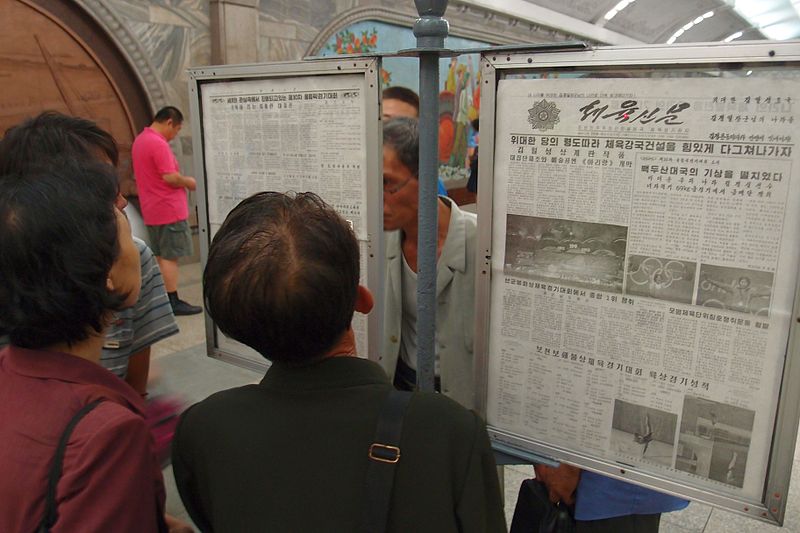The Peninsula
What did Kim Jong-un Mean by “Dealing a Telling Blow to Hostile Forces”?

By Mark Tokola
Reporting on the April 10, 2019 meeting of the Central Committee of the Worker’s Party of Korea, the North Korean state media headline was: “N. Korea must deal a ‘blow’ against hostile forces, Kim Jung-un tells the ruling party.” The Central Committee meeting was held in advance of the 14th Supreme People’s Assembly (SPA) that was held on April 11. Particular attention was paid to the belligerent headline in the U.S. media because commentators were waiting to see how Kim would react to the failure to reach an agreement with President Trump at the February 27-28 Hanoi Summit. In context, however, Kim’s remarks were not as alarming as they appeared to be in the headline.
Kim Jong-un’s presentation to the Central Committee was mostly noteworthy for its heavy emphasis on the North Korean economy and for its lack of any direct criticism of the United States. There were some references to defending the DPRK, but mostly in terms of what North Koreans need to do to advance their own country rather than about the evil intentions of hostile outsiders.
What Kim said about a “telling blow” as reported in the North Korean media beyond the headline was, “[North Korea] should vigorously advance socialist construction…to deal a telling blow to hostile forces who with bloodshot eyes miscalculate that sanctions can bring the DPRK to its knees.” In other words, the “telling blow” would be that North Korea would be able to confound its enemies by withstanding economic sanctions.
The North Korean media reported that Kim Jong-un in his report to the Central Committee had “made a scientific analysis of the changed international landscape and the peculiarities of the present situation becoming daily acute and clarified the main tenor of the recent DPRK-U.S. summit talks and the Party’s stance towards it.” Kim’s prescription to deal with the ”peculiarities of the present situation,” is to “more vigorously advance socialist construction by dint of self-supporting national economy… Self-reliance and self-supporting national economy are the bedrock of the existence of our own style socialism.”
Kim’s appeals for more efforts to advance the North Korean economy came close to admitting that it has underperformed in the past, “[there is a need to] put the national economy on a new phase of growth by expanding and reinforcing the foundation of the economy.” North Korea has “reserved strength…and tremendous potential” — words which imply that its strength is not being exercised and its potential is not being met. One difference between Kim Jong-un and his predecessors is his willingness to admit that everything is not perfect in North Korea.
What can be drawn from Kim Jong-un’s comments to the Central Committee? Two main points are: (1) sanctions must be having an effect on the North Korean economy or he wouldn’t be so vociferous about the need to mobilize the country to resist them; and (2) he is continuing to stake his legitimacy on a promise to improve the North Korean economy. Kim called on “the entire party, the whole country, and all the people [to] courageously wage an all-out, death-defying campaign to bring about a great surge in socialist construction. Building an economic power is the main political task.” That doesn’t sound like a man who is satisfied with the way things are going.
Mark Tokola is the Vice President of the Korea Economic Institute of America. The views expressed here are his own.
Photo from user MarsmanRom on Wikimedia Commons.
